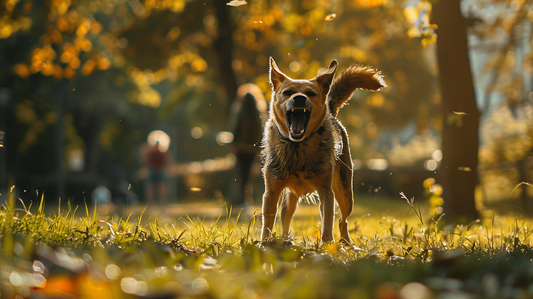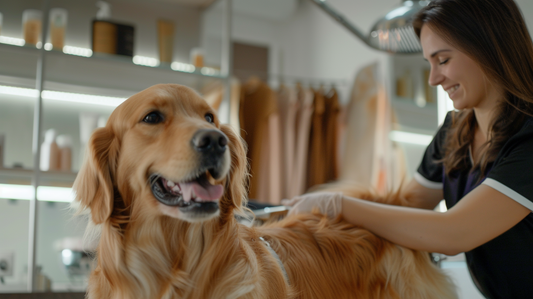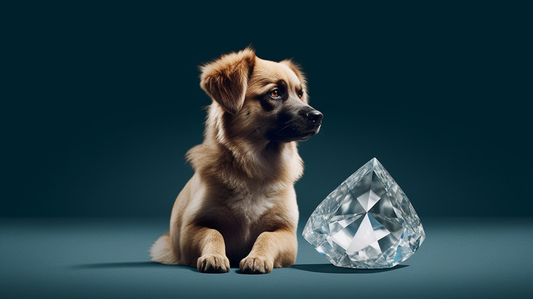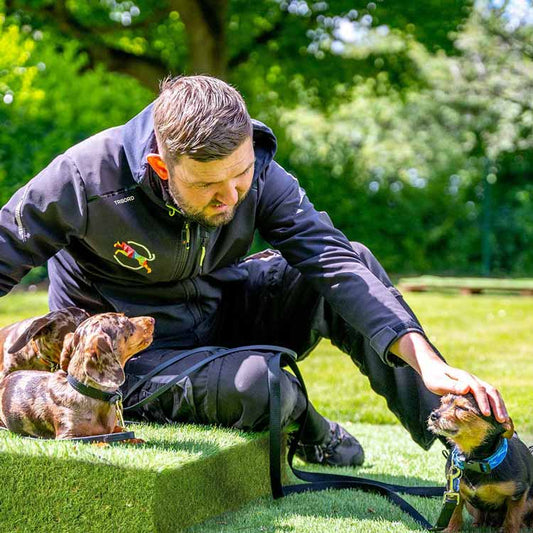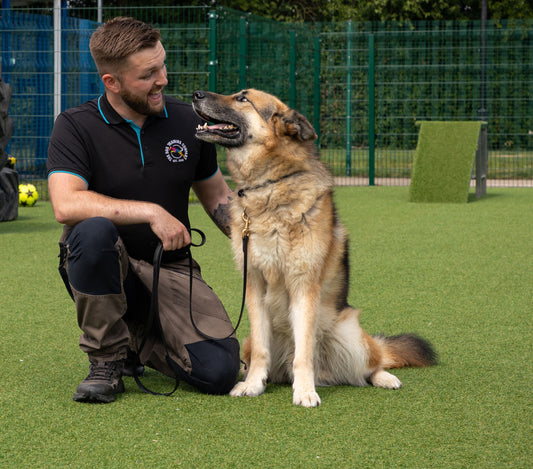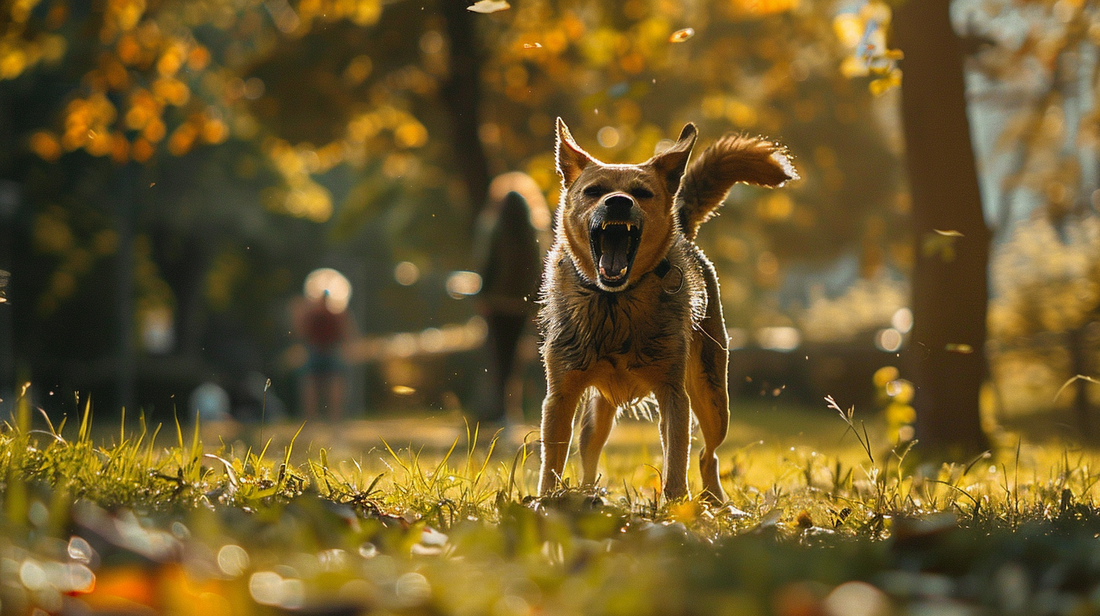
Why We Must Control Our Dogs: The Law and Understanding the Importance of Responsible Dog Ownership
As much as we adore our canine companions, it is crucial to recognize that dogs are animals, and as such, they inherently possess the potential to be dangerous. Relying solely on the perception of a "good" dog is a misguided approach, as it may lull us into a false sense of security and cause us to neglect our responsibility to maintain control over our pets. In fact, it is against the law to allow a dog to be dangerously out of control anywhere, whether in public places, private places such as a neighbour's house or garden, or even within the owner's home. This law applies to all dogs, regardless of breed or temperament.
As dog owners, it is our duty to take responsibility for our pets and ensure they are well-behaved and under our control at all times. By only approving of a "good" dog choice, we risk neglecting the crucial aspect of ongoing training and supervision, which could lead to unintended consequences and dangerous situations. In this article, we will delve into the reasons why we must maintain control over our dogs and avoid the pitfalls of relying solely on the notion of a "good" dog.
Dogs, as domesticated animals, depend on their human caregivers for their basic needs such as food, shelter, and social interaction. This dependency creates a unique relationship between dogs and their owners, placing a significant responsibility on the owner to not only provide for the dog's well-being but also to ensure their behaviour is controlled and well-mannered. As dog owners, we are solely responsible for our pets' actions, both morally and legally.
Morally, it is our obligation to raise and train our dogs in a manner that ensures they coexist peacefully with other animals and humans. This includes teaching them to respond to commands, socialising them with various environments, and addressing any behavioural issues that may arise. A well-trained and controlled dog is not only safer for the community but also reflects the owner's commitment to being a responsible and considerate pet guardian.
Legally, dog owners are held accountable for the actions of their pets. Owners can be held liable for damages or injuries caused by their dog. This can include instances where a dog bites someone, causes an accident, or destroys property. By maintaining control over our dogs and taking responsibility for their behaviour, we can minimise the likelihood of such incidents and reduce the risk of facing legal consequences.
In England and Wales, some public areas have Public Spaces Protection Orders (PSPOs), formerly known as Dog Control Orders (DCOs). In these areas, dog owners may be required to keep their dog on a lead, put the dog on a lead when instructed by authorities, restrict their dog from specific areas, limit the number of dogs they have with them (including professional dog walkers), clean up after their dog, and carry a poop scoop and disposable bags.
The Importance of Controlling Dogs
Understanding What is Considered Out of Control
The law considers a dog to be dangerously out of control if it injures someone or makes someone worried that it might injure them. Moreover, a court could also decide that your dog is dangerously out of control if it attacks someone's animal or if the owner of an animal thinks they could be injured if they tried to stop your dog attacking their animal. It is important to understand that as dog owners, we are responsible for our pets' behaviour, and we must take steps to ensure they are well-trained, well-behaved, and under our control at all times.
The Penalties of Not Controlling Your Dog
If your dog is dangerously out of control, you could face severe penalties, including an unlimited fine or up to six months in prison, or both. In extreme cases where your dog injures someone or even kills someone, you could face even more severe penalties, including up to five years in prison or an unlimited fine, or even 14 years in prison if your dog kills someone. These penalties are not just for the safety of others but also for the welfare of your dog. If you let your dog injure someone, you may not be allowed to own a dog in the future, and your dog may be destroyed.
Types of Banned Dogs
It is worth noting that some types of dogs are banned in the UK, and owning one of these breeds could result in legal action. These banned breeds include the Pit Bull Terrier, Japanese Tosa, Dogo Argentino, Fila Brasileiro and now of course the XL Bully. If you own one of these breeds or any crossbreed containing any of these breeds, you must take extra care to ensure they are well-behaved and under your control at all times.
Responsible Dog Ownership
Training Your Dog
The key to responsible dog ownership is training. As a dog owner, it is your responsibility to ensure that your pet is well-trained and well-behaved. This includes basic obedience training such as sit, stay, and come, as well as socialisation training to help your dog interact with other people and animals safely. The earlier you start training your dog, the easier it will be to control their behaviour.
Exercise and Stimulation
Another important aspect of responsible dog ownership is ensuring your dog gets enough exercise and mental stimulation. Dogs are highly active animals, and they need plenty of exercise to stay healthy and happy. A lack of exercise can lead to boredom, frustration, and destructive behaviour. As such, it is important to take your dog for regular walks and provide them with toys and activities to keep them mentally stimulated.
Containment and Supervision
Finally, it is important to ensure that your dog is properly contained and supervised at all times. This means keeping your dog on a leash when out in public and ensuring your garden is secure so your dog cannot escape. It is also important to supervise your dog when they are interacting with other people and animals to ensure they are well-behaved and not cause any harm. This level of containment and supervision is particularly important for dogs that have a history of aggressive or unpredictable behaviour.
In the UK, a dog is considered "out of control" if it:
Injures someone: If a dog injures a person, it is considered to be out of control. Injuring someone can have serious consequences for the dog and the owner, including legal penalties.
Makes someone worried that it might injure them: A dog can also be deemed out of control if its behaviour causes someone to worry or fear that they might be injured. This means that even if the dog has not actually caused harm, if its actions lead someone to feel threatened, it can still be considered out of control.
It is important for dog owners to be aware of their dog's behaviour and to take necessary precautions to ensure their pet is well-behaved and under control at all times. This includes proper training, socialisation, and supervision to prevent potentially dangerous situations.
Conclusion
In conclusion, as dog owners, we must take responsibility for our pets and ensure that they are well-behaved and under our control at all times. This not only ensures the safety of others but also the welfare of our pets. Understanding what is considered out of control, the penalties of not controlling your dog, and the importance of responsible dog ownership, including training, exercise, and containment, are all essential in keeping our pets safe and happy.
FAQs
What should I do if my dog shows aggressive behaviour towards others?
Seek professional help from a veterinarian or animal behaviourist to address the issue immediately.
Can I let my dog off-leash in a public park?
It depends on the park's rules and regulations, but in general, it is best to keep your dog on a leash to ensure their safety and the safety of others.
What can I do if I see a dog that is dangerously out of control?
Report the incident to the authorities immediately to ensure that appropriate action is taken.
How much exercise does my dog need?
The amount of exercise your dog needs varies based on their breed, age, and overall health. Consult with your veterinarian to determine the appropriate amount of exercise for your pet.
Can I train my dog myself?
Yes, you can train your dog yourself, but it is recommended that you seek the guidance of a professional trainer to ensure that your dog receives proper training and socialisation.

